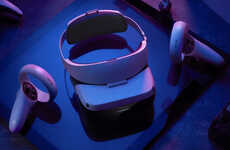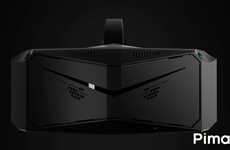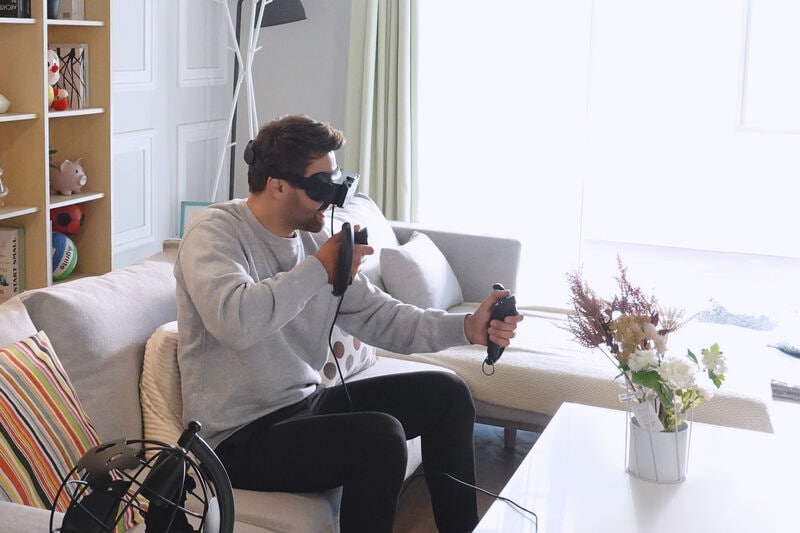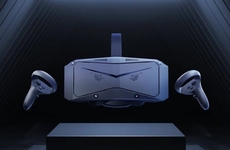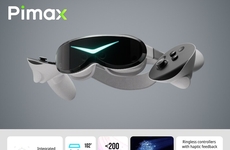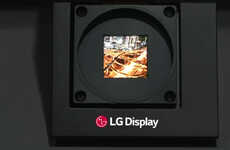
'arpara' Has Created Two Micro-OLED VR Headsets with High-Res Displays
Colin Smith — December 15, 2021 — Tech
References: kickstarter & arparaland
NFT and tech accessory-focused startup 'arpara' has created two high-quality VR headsets that are intended to address the 'screen door' effect in VR. The screen door effect is a reality-breaking VR phenomenon where there are visible gaps in between pixels that take the wearer out of the immersed environment. arpara has created the 'Tethered' and 'All-In-One (AIO)' headsets that have addressed these issues.
These VR headsets feature dual 2560x2560 micro-OLED displays, one for each eye, with a 1 microsecond response time. On top of this, these headsets feature 3514 PPI and a 95° field-of-view. When all of these visual features are combined, the screen door effect does not apply and users can experience a smooth, clear viewing experience for games, movies, and experiences in virtual reality.
The key difference between the AIO and the Tethered headsets are the wire. The AIO headset has wireless capabilities and a processor of its own, while the Tethered headset is meant to be used with accompanying hardware, such as a computer.
Image Credit: arpara
These VR headsets feature dual 2560x2560 micro-OLED displays, one for each eye, with a 1 microsecond response time. On top of this, these headsets feature 3514 PPI and a 95° field-of-view. When all of these visual features are combined, the screen door effect does not apply and users can experience a smooth, clear viewing experience for games, movies, and experiences in virtual reality.
The key difference between the AIO and the Tethered headsets are the wire. The AIO headset has wireless capabilities and a processor of its own, while the Tethered headset is meant to be used with accompanying hardware, such as a computer.
Image Credit: arpara
Trend Themes
1. Micro-oled Displays - The use of dual 2560x2560 micro-OLED displays to address the screen door effect presents an opportunity for manufacturers to create improved VR and AR headsets.
2. Wireless VR Headsets - The creation of the All-In-One headset with wireless capabilities presents an opportunity for manufacturers to create standalone VR and AR headsets for improved convenience and portability.
3. High-ppi Displays - The use of high-PPI displays, such as the 3514 PPI featured in the arpara VR headsets, presents an opportunity for manufacturers to create improved displays for various electronic devices.
Industry Implications
1. Virtual Reality - The development of ultra-clear VR headsets with high-quality displays creates a disruptive innovation opportunity for the virtual reality industry to enhance user experience and immersion.
2. Augmented Reality - The use of micro-OLED displays and high-PPI displays in AR headsets presents an opportunity for the augmented reality industry to improve visual quality and realism in AR applications.
3. Consumer Electronics - The use of micro-OLED displays and high-PPI displays has the potential to disrupt the consumer electronics industry, as manufacturers can create improved displays for various electronic devices such as smartphones and laptops.
6
Score
Popularity
Activity
Freshness



